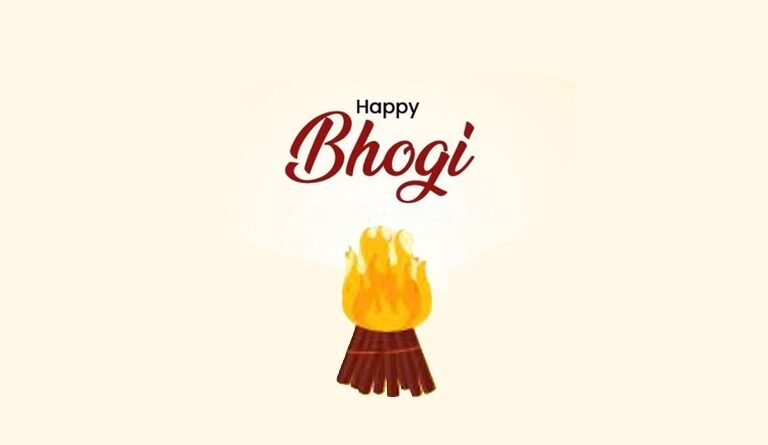Bhogi Festival 2025: A Celebration of Renewal and Prosperity
Introduction
The Bhogi Festival marks the beginning of the four-day Pongal festival celebrated in South India, especially in Tamil Nadu, Andhra Pradesh, Telangana, Karnataka, and Maharashtra. Observed on January 13th or 14th, Bhogi is dedicated to Lord Indra, the god of rain and clouds, as well as to the Sun God. The festival signifies the discarding of old things and the welcoming of new beginnings, making it an occasion of renewal, purification, and prosperity.
Significance of Bhogi
Bhogi is a harvest festival celebrated by agrarian communities to mark the end of the winter season and the arrival of the Sun in the northern hemisphere (Uttarayan). It is a day when people thank nature, ancestors, and gods for a good harvest, seeking blessings for a prosperous year ahead. It also symbolizes letting go of negativity and embracing positivity.
Rituals and Traditions
Bhogi Mantalu – The Sacred Bonfire
One of the most important traditions of Bhogi is the Bhogi Mantalu, or the sacred bonfire. People discard old and unwanted household items, especially wooden furniture, mats, and agricultural waste, and set them on fire. This act symbolizes burning away the past and starting anew with fresh energy and enthusiasm. The fire also serves to warm up homes and bodies during the winter season.
Cleaning and Decorating Homes
- Houses are cleaned and whitewashed to remove negativity and prepare for the festive days ahead.
- Beautiful rangoli (kolam or muggulu) patterns made of rice flour and colored powders decorate the doorsteps, symbolizing prosperity and welcoming good fortune.
- Mango and banana leaves are used for decorating entrances, as they are believed to attract positive energy.
Special Prayers and Offerings
- Devotees offer prayers to Lord Indra and Surya (Sun God) for a prosperous year ahead.
- Women and children perform Gobbi Kolam, a tradition of creating small mud mounds decorated with flowers, signifying fertility and prosperity.
- Special offerings like Bhogi Pongal (a dish made of freshly harvested rice, jaggery, and milk) are prepared and offered to the deities.
Bhogi Pallu – A Special Tradition for Children
In Telangana and Andhra Pradesh, there is a special tradition called Bhogi Pallu, where children are showered with regi pallu (Indian jujube berries), coins, sugarcane pieces, and flowers. Elders perform this ritual to ward off evil and bless children with good health and happiness.
Community Celebrations
- Farmers worship their agricultural tools and cattle, thanking them for their contribution to the harvest.
- In some places, bullock cart races and other rural games are organized as part of the celebrations.
- The festival fosters community bonding, with families and friends gathering for feasts and festivities.
Bhogi and Its Connection to Other Festivals
Bhogi is the first day of the Pongal festival in Tamil Nadu, followed by:
- Thai Pongal – Dedicated to the Sun God.
- Mattu Pongal – Celebrating cattle and their contribution to farming.
- Kaanum Pongal – A day for family reunions and socializing.
In Maharashtra, Bhogi is part of Makar Sankranti celebrations, which mark the transition of the Sun into Capricorn (Makara Rashi).
Conclusion
Bhogi is more than just a festival; it is a time of renewal, gratitude, and celebration. It teaches us the importance of letting go of the past, embracing new beginnings, and showing gratitude for nature’s gifts. The joyous atmosphere, colorful decorations, delicious food, and the warmth of family and community make Bhogi a truly memorable and auspicious occasion.
As Bhogi sets the stage for Pongal, it reminds us to start afresh with positivity and prosperity, ensuring a year filled with happiness and success.

